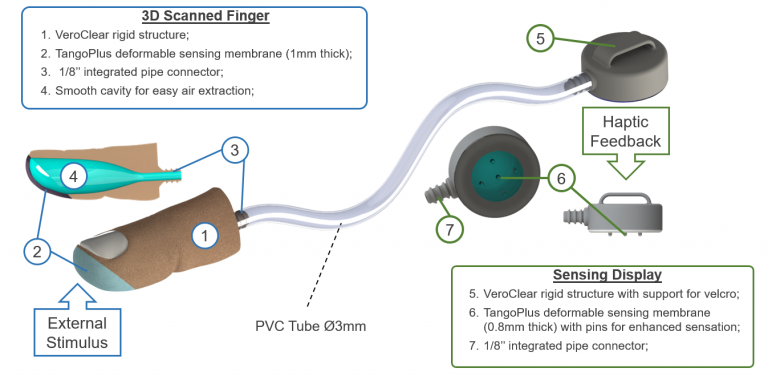
The project, named ‘A sensorimotor PROsthesis for the upper LIMB (PROLIMB)’, is a collaboration with University College London (UCL) and University Hospitals Coventry and Warwickshire (UHCW).
Funded by the Engineering and Physical Sciences Research Council (EPSRC), PROLIMB will be led by principal investigator Prof. Michael Chappell with co-investigator Dr Neil Evans from Warwick’s School of Engineering. It aims to combine mathematical modelling and motion capture capabilities with practical aspects of digit design through body-powered motion and haptic sensing, drawing on expertise from UCL’s Soft Haptics and Robotics Lab.
Chappell told The Engineer that EPSRC funding supported a PhD student who had been looking at grasp taxonomies for the hand, and how common grasps have changed based upon current usage today.
"There’s a lot more usage of tablets, keyboards and phones which means that common hand grasps have changed dramatically over the years," he said.
Through the use of mathematical modelling to derive finer scale models of hand motion, the team hopes to pave the way for the design of future prostheses.
Spinal stimulators could give sensory feedback to prosthetic arms
Engineering can take inspiration from nature for better prosthetics
Co-investigator Joseph Hardwicke, consultant plastic and reconstructive surgeon at UHCW and associate professor at Warwick University's Medical School, explained that although there are currently upper limb prostheses available, these tend to be either ‘prohibitively expensive’ or less effective. It is hoped that the project will enable the team to develop a prosthesis that is not only low-cost but able to deliver sensation and functionality to patients who have undergone partial amputation of the hand.
“A total hand amputation is very debilitating, but it is also very rare - single digits, such as a thumb, are much more common and without a thumb the function of the hand becomes very hard,” Hardwicke said. “I think using the design technologies we already have available in the NHS, if we can make this into a functional prosthesis, it’ll be a real game changer.”
The PROLIMB project will involve establishing an expert working group including clinicians who will offer advice and support across all stages of the research. Patient and Public Involvement (PPI) groups will also be included, as well as key industrial NHS providers based in Leeds.
Prof. Shervanthi Homer-Vanniasinkam, project co-investigator, consultant vascular surgeon at Leeds General Infirmary and professor of Engineering and Surgery at UCL, said: “I have a mantra of ‘three As’ in global healthcare: it should be affordable, accessible and appropriate. And I think that this project really does fulfil that. The reality is that even in pre-pandemic times, a lot of the stronger technology is simply inaccessible to most people in the world, even in the Western world.”
Commercialisation and patient acceptability is the key goal for the team, who confirmed that working alongside major NHS providers will prove integral to achieving this. Chappell added that the project could also have implications in other areas, such as in engineering and design situations where hands are involved in the context of a piece of equipment or machine.





Project to investigate hybrid approach to titanium manufacturing
What is this a hybrid of? Superplastic forming tends to be performed slowly as otherwise the behaviour is the hot creep that typifies hot...